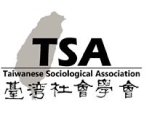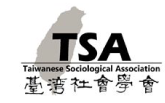場次簡介/ Description:
最晚近的臺灣社會變遷調查資料顯示,縱使長期本土化趨勢之下,臺灣民眾對臺灣文化的認同不斷升高,但相當有意思的是,超過六成以上的民眾仍同意臺灣文化是中國傳統文化的延續。
本論壇嘗試回應本土化的臺灣社會對中華文化認同的複雜糾葛,各類華人宗教團體與讀經運動組織,即是維繫此一認同的重要機制。本論壇包括四篇研究,前兩篇(楊弘任、袁光譽)以綜觀角度,解析「中華文化」的範疇起源,分辨「中華文化」與「儒家文化」及「華人性」之間的異同與關連,並將這一變化放入當代跨海峽政教關係變動中持續考察。後兩篇(陳登翔、顧頡鋒)則以個案探討,分別處理人間佛教中極具代表性的佛光山教團,以及近幾十年在華人世界影響甚深的淨空法師所成立的淨宗學會,兩大教團均有其納入儒家文化的教義調適歷程,但也都各依禪宗或淨土法門維繫教團的實修風格,同時對外則鮮明的宣稱自身是「中華文化」的推手。綜合這四篇研究,本論壇希冀能以「組裝的本真」這一避免本質化或東方主義式的思考進路,初步釐清各類華人宗教中正在持續變動與重組的「中華文化」樣貌
發表人/ Presenter:楊弘任(中央研究院社會學研究所副研究員)
題目/ Title:重新組裝「中華文化」:華人宗教如何面對跨海峽政教關係的轉變?
摘要/ Abstract:
本研究首先回溯考察「中華」、「中華民族」以迄「中華文化」等範疇之形成過程,並探問:臺灣社會由戒嚴到民主化與本土化,各類華人宗教團體(包括鸞堂、宮廟、人間佛教、一貫道)與讀經團體出現「中華文化」範疇的時機與因由?其次,本研究探討中共黨國體制自改革開放以迄六四事件之後,逐步由「儒家文化」與「孝道」的接納,直到積極提出「中華優秀傳統文化」的篩選機制之過程。此時,來自臺灣的各類華人宗教團體或讀經團體,被安置在意識形態與宗教的「雙重治理」下進行如何之治理?在分析架構上,本研究嘗試跳脫「本質論與建構論」等既有模式,轉而考察前述各類相關行動者對於「中華文化」的文化本真性想像之爭議。在此基礎下,本研究進一步嘗試回答:各類華人宗教團體或讀經團體在面對「雙重治理」時,何種狀況下會出現主動認同或被迫順應?何種狀況下則可能出現宗教自主性與修行主體性?本研究係國科會專題計畫「跨海峽政教關係下的『中華文化』:消逝、延續、或重組?(MOST 111-2410-H-001-044-MY3)」之部分研究成果,研究者已對鸞堂、宮廟、人間佛教、一貫道與讀經團體完成初步之文獻蒐集與深度訪談。
關鍵字:中華文化、本真性想像、宗教社會學、華人宗教團體、跨海峽社會研究
發表人/ Presenter:袁光譽 Robert Ivan(國立臺灣大學社會學系博士生)
題目/Title:Confucian Confusion: A Critical Examination of Orientalist Biases in the Study of Confucianism and East Asian Societies
摘要/Abstract:
This paper is motivated by the field research during my Master's studies, along with my exploration of social and cultural history as distinct from the history of ideas. These experiences have led me to question the methodological underpinnings and conceptual frameworks in research on Confucianism, Chinese culture, and Chineseness. Criticisms raised by Arif Dirlik and Kiri Paramore further reinforced my doubts. Thus, the aim of this paper is to identify and systematize prevailing preconceptions and biases.
While these issues are prevalent in the social sciences, I specifically focus on Confucian studies as a case study due to the significant influence of these biases in shaping the field's foundations. This paper seeks to stimulate reflection among social scientists regarding how biases influence discussions on social processes in East Asian societies, often characterized as "Confucian societies," perpetuating preconceived Orientalist notions.
Drawing from the concept of Orientalism, with substantial modifications to Edward Said's original formulation, I define core issues and biases. The paper demonstrates how this Orientalist perspective, encompassing essentialism, dualism, intellectualism, elitism, Sinoromantism, and the equation of Confucianism with Chineseness, continues to shape discussions on East Asian societies. This perspective often reverses value judgments between the East and the West, portraying ancient Chinese wisdom as a universal solution for the modern world, occasionally delving into nativism, political romanticism, and identitarianism.
I identify shared cultural logic within Confucian studies, despite apparent differences and occasional opposition. Furthermore, I find these biases are deeply ingrained in social scientific research, evident in widespread dichotomies of the East and the West, tradition and modernity, collectivism and individualism, or the automatic framing of public engagement as Confucian consciousness.
In conclusion, I argue that reexamining the foundations of Confucian studies is crucial for its credibility as a reliable source for scholars from other disciplines. Additionally, the critique and call for revision raised in this article extend beyond Confucian studies, encompassing the broader realm of social sciences.
Keywords: Confucianism, Orientalism, methodological frameworks, sociology
發表人/ Presenter:陳登翔(中央研究院社會學研究所博士後研究)
題目/Title:人間佛教的中華文化延續、重組與展演:以佛光山的傳教內容為例
摘要/Abstract:
台灣漢傳佛教團體佛光山、慈濟、法鼓山的傳教內容,主要以人間佛教為基礎,同時強調傳統中華文化的內涵,其中佛光山創辦人星雲法師更是以佛教即是中華文化作為傳教的主軸,以此,本研究探討佛光山的人間佛教對於中華文化內容的延續與重組。人間佛教強調人的修行與成佛是在俗世中完成,佛教徒不僅不應離開社會,而應積極地進入到社會裡,在與大眾的互動過程中進行參禪與悟道,此教義內涵,得以和中華文化中儒家思想對於人際之間倫理的論述進行連結與對話;同時,人間佛教的禪修實作不只在禪堂進行,而是認為在日常生活中的行住坐臥皆是禪,強調禪修是在煩擾的俗務中能夠使自身保持平靜,足見人間佛教逐步對儒家文化入世精神的含納與調整。本研究探究佛光山人間佛教教義中,對於哪些中華文化與儒家文化的內容進行延續或重組,並持續探問其在全球傳教過程中,強調與展演何種中華文化的意涵。展演部分則以德國佛光山在除夕上頭香、大年初一新春活動以及元宵節聯歡等三個具有中華文化意涵的活動進行田野調查,分析其活動內容如何展演中華文化。
關鍵字:人間佛教、中華文化、佛光山、儒家思想
發表人/ Presenter:顧頡鋒 Stefan Kukowka(國立政治大學宗教研究所及法國國立東方語言與文化學院博士生)
題目/Title:Aspiring World Peace Through Education: Pure Land Societies and the Global Promotion of Traditional Chinese Education
摘要/Abstract:
This paper aims at examining the educational projects of Pure Land Societies (jingzong xuehui淨宗學會), founded by Master Jingkong (1927-2022), in the field of primary, secondary, and tertiary level education in Taiwan and the United Kingdom, effectively covering the entire educational path of children from kindergarten to university and beyond. Regardless of whether one listens to Jingkong’s dharma lectures or those of his monastic disciples’ starting from the early 2000s, speaks to his lay followers in different parts of Taiwan, Germany, and the UK, or joins online Zoom meetings, there is one phrase that one is certain to hear: ‘one consecutive education’ (yitiao long de jiaoyu 一條龍的教育). It means that within Jingkong’s network of Pure Land Societies, educational foundations, and individual or institutional endorsers of his visions strive to establish an alternative mode of modern education by reviving and promoting ‘traditional Chinese culture’ (chuantong zhongguo wenhua 傳統中國文化) to cultivate the next generation of ‘sages’ and to solve all sorts of challenges, problems, and conflicts that our society faces nowadays – with world peace being the ultimate goal. Jingkong believes that our current educational systems only focus on transmitting knowledge while neglecting moral cultivation. In the writings of the Chinese sages and virtuous of the past, he deems to have found the wisdom necessary to rectify the wrongs of modern education and guide our global society towards a peaceful future. It is, therefore, essential to re-introduce traditional Chinese culture in the Sinosphere but also to spread the word to other parts of the world.
The complexity of this phenomenon is highlighted by the fact that there is no central organisation but rather a variety of actors striving to implement Jingkong’s ideals. I have, thus, conducted multi-sited fieldwork in Taiwan, Germany, and the United Kingdom to understand how Jingkong and his followers promote Chinese culture in connection with Chinese Pure Land Buddhism through various educational projects, including kindergartens, high schools, universities, summer camps, and lecture series in different societal contexts.
Keywords: Taiwanese Buddhism, Jingkong, Pure Land Society, Religion and Education


